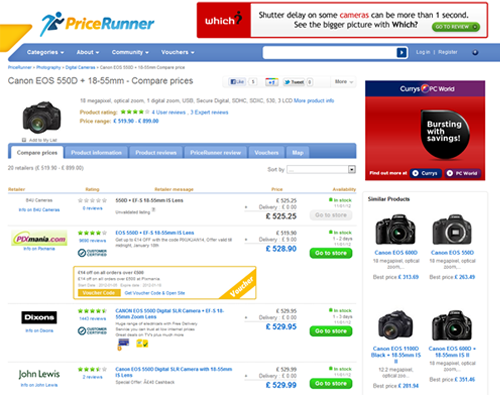 |
| Picture obtained from http://www.pricerunner.co.uk/ |
Comparison websites have
great potential for the developments of online shopping: they help consumers in
saving time and making informed choices. However, according to a recent BEUC position paper, for their
potential to be appropriately developed, they need to be reliable. This means, that they have to be as transparent as
possible as to a variety of factors, such as:
-
The ownership;
-
The way they are financed;
-
The frequency with which they
are updated;
-
Their geographic coverage;
-
The methodology they employ;
-
Their coverage of the concerned
sector (all providers, some providers…).
The provision of this fundamental information, in any case, should
not turn into an overload for the users, thus emphasis should be put on the quality of this information, i.e. on the
interest which the latter carries for consumers (the price shown, for instance,
should be as “final” as possible), without
highlighting price at the expenses of other conditions which consumers
should also be aware of. At the same time, the way the information is organised
is important: comparability should be granted according to all relevant product
characteristics, including delivery. In case of ranking, the consumer should
know what factors shape it in order to assess its reliability.
Finally, supervisory authorities should take charge of monitoring
comparison activities to ensure consumer trust.